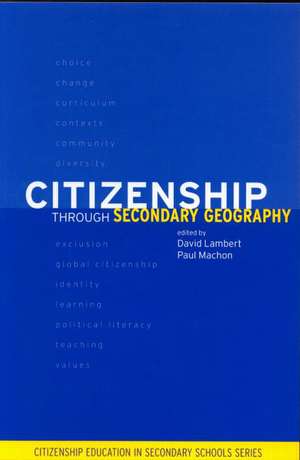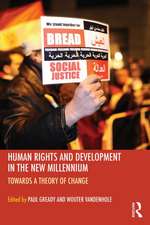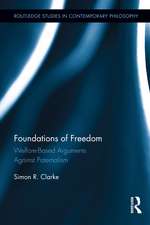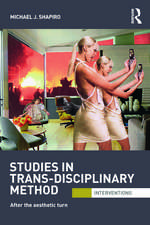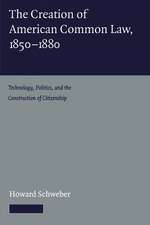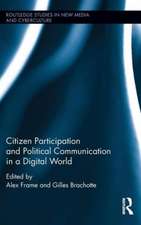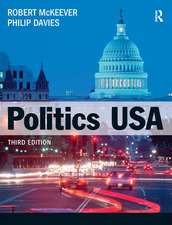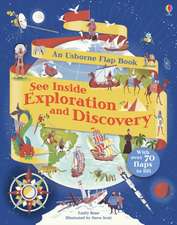Citizenship Through Secondary Geography
Editat de David Lambert, Paul Machonen Limba Engleză Paperback – 23 aug 2001
- theoretical signposts in the form of short, digestible explanations for key ideas such as racism, values, identity, community and social exclusion
- a number of inset activities 'for further thinking'
- a critique of the discipline and the pitfalls to avoid in teaching citizenship through geography
- practical teaching suggestions.
Preț: 482.23 lei
Nou
Puncte Express: 723
Preț estimativ în valută:
92.30€ • 95.99$ • 77.35£
92.30€ • 95.99$ • 77.35£
Carte tipărită la comandă
Livrare economică 13-27 martie
Preluare comenzi: 021 569.72.76
Specificații
ISBN-13: 9780415231602
ISBN-10: 0415231604
Pagini: 240
Ilustrații: 1
Dimensiuni: 156 x 234 x 13 mm
Greutate: 0.45 kg
Ediția:New.
Editura: Taylor & Francis
Colecția Routledge
Locul publicării:Oxford, United Kingdom
ISBN-10: 0415231604
Pagini: 240
Ilustrații: 1
Dimensiuni: 156 x 234 x 13 mm
Greutate: 0.45 kg
Ediția:New.
Editura: Taylor & Francis
Colecția Routledge
Locul publicării:Oxford, United Kingdom
Public țintă
Postgraduate and ProfessionalRecenzii
'Lambert and Machon's [book] is a timely and considered contribution ... the book provides chapters setting the background to citizenship in geography education from a stimulating range of different viewpoints ... [it] is an essential read for those at the intersection of citizenship and geography in secondary schools.' - Angus Willson, The Development Education Journal
'Though this book has been prompted by developments in the English National Curriculum, its import goes far beyond the narrow confines of British educational policy. The questions it poses and the issues it raises are of universal significance and merit being read by all teachers of geography and social studies ... This is a thought provoking book with at the same time plenty of pointers for classroom action.' - International Research in Geographical and Environmental Education
'Lambert and Machon's [book] is a timely and considered contribution...the book provides chapters setting the background to citizenship in geography education from a stimulating range of different viewpoints...[it] is an essential read for those at the intersection of citizenship and geography in secondary schools.' - Angus Willson, The Development Education Journal
'Though this book has been prompted by developments in the English National Curriculum, its import goes far beyond the narrow confines of British educational policy. The questions it poses and the issues it raises are of universal significance and merit being read by all teachers of geography and social studies ... This is a thought provoking book with at the same time plenty of pointers for classroom action.' - International Research in Geographical and Environmental Education
'Lambert and Machon's [book] is a timely and considered contribution...the book provides chapters setting the background to citizenship in geography education from a stimulating range of different viewpoints...[it] is an essential read for those at the intersection of citizenship and geography in secondary schools.' - Angus Willson, The Development Education Journal
Cuprins
1.Introduction Section 1: Contexts 2.Citizenship Education: Permeation or Pervasion? Some Historical Pointers 3.Citizenship and Geography Education: An International Perspective 4.Values and Values Education in the Geography Curriculum in Relation to Concepts of Citizenship 5.Finding its Place: Contextualising Citizenship Within the Geography Curriculum Section 2: Curriculum Issues 6.To Which Space do I Belong? The Seduction of Community 7.'Where shall I draw the line, Miss?' The Geography of Exclusion 8.A Very British Subject: Questions of Identity 9.Citizenship Denied: the Case of the Holocaust 10.Towards Ecological Citizenship 11.Global Citizenship: Choices and Change 12.Citizenship in Geography Classrooms: Questions of Pedagogy Section 3: Conclusion 13.Conclusion: Citizens in a Risky World
Descriere
This book defines the contribution that geography makes to citizenship and democracy education, and which indeed it must make if citizenship education is to be effective in a crowded curriculum.
